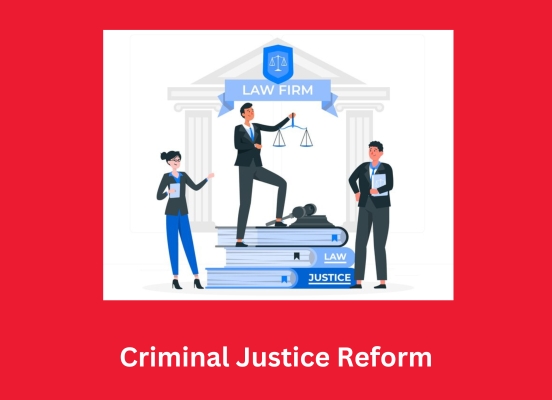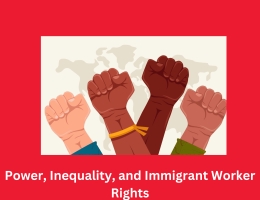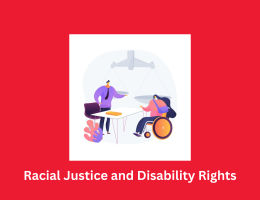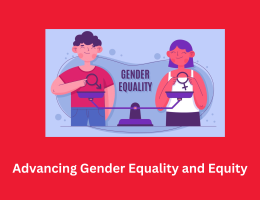
Criminal Justice Reform
- By admin --
- Friday, 08 Mar, 2024
Introduction:
One of the urgent issues society has to urgently deal with today is criminal justice transformation striving to put right systemic mistakes in the legal sector, which perpetuate unfairness and injustice. The paper includes analyzing the criminal justice system complexities with regard to areas such as racial profiling, mass incarceration and disparities in sentencing. When these problems are examined alongside solution propositions, a more just legal system can be pursued by all individuals.
Understanding Systemic Issues:
An array of various bodies are part and parcel of the criminal justice system such as police, courts and prisons, which help in keeping law and order and ensuring that justice is served. However, the entire arrangements of these bodies have raised genuine fears regarding fairness, responsibility and racist inclinations."
Racial Profiling:
The practice of singled out for suspicion or enforcement action based not on an individual's behaviour but rather on their race, ethnicity, or national origin is known as racial profiling. Law enforcement agencies engage in this widespread discriminatory practice, which has resulted in a disproportionate targeting of people of colour, especially Black and Latino populations.
Mass Incarceration:
Mass incarceration refers to the significant increase in the number of individuals held in prisons and jails, often as a result of harsh sentencing laws and policies. The United States, where more people are locked up than in any other country in the world, affects marginalized groups disproportionately. As a result of their higher detention rates, longer prison terms, as well as lack of appropriate support systems that would enable them reintegrate well after serving their sentences, it is mainly blacks who end up behind bars more often than any other demographic group.
Disparities in Sentencing:
Sentencing disparities involve the unjust treatment of persons in the criminal justice system depending on characteristics like social class, race, or even where they live. Several studies have shown racial minorities get tougher punishments than their white friends when they commit same crimes. Consequently, minimum mandatory sentence rules as well as other recommended sentences have led to inconsistency in punishments.
Causes of Systemic Issues:
1.Institutional Racism:
The criminal justice system is based on institutional racism that emanated from slavery, segregation, and discrimination. Discrepancies in the arrest, prosecution, and trials are a result of racial discrimination against police officers, prosecutors, and judges.
2.War on Drugs:
Ever since the 1970s when the War on Drugs began, it has concentrated more on minority communities, jailing several of the persons who have been found guilty of small-scale drug crimes. Minimum sentencing requirements and tough penalties for narcotics have also fueled a high explosion of the incarceration rates and perpetuated the racial imbalances within the judicial system.
3.Poverty and Inequality:
Poverty, unemployment, and limited access to healthcare and education are socioeconomic variables that increase the likelihood of becoming involved in the criminal justice system. Individuals from marginalised communities are more likely to encounter institutional obstacles to fair treatment and legal representation within the legal system, as well as financial difficulties.
Consequences of Systemic Issues:
1.Cycle of Incarceration:
A vicious circle of poverty and crime is saved alive via mass incarceration, because the ones who have been imprisoned run into difficulties related to job seek, locating a respectable place to live, and going to highschool. This vortex of imprisonment touches people of different ethnic backgrounds more than other categories ; this way intergenerational impoverishedness and inequality continue.
2.Erosion of Trust:
Public trust and confidence in law enforcement and the legal system are undermined by systemic problems inside the criminal justice system. Because of decades of prejudice and injustice, communities of colour, in particular, have endured historical trauma and distrust.
3.Human Rights Violations:
The mass incarceration of individuals, often for nonviolent offenses, raises concerns about human rights violations, including overcrowding, poor living conditions, and limited access to healthcare and mental health services within correctional facilities.
Solutions to Address Systemic Issues:
1.Police Reform:
It can improve the relationship between police, their relatives, and the society if the technique of community policing programs, implicit bias courses for law enforcers, and deployment matters are used to reduce biases involved in racial profiling.
2.Sentencing Reform:
Revising sentencing laws and guidelines to eliminate mandatory minimum sentences and promote alternatives to incarceration, such as diversion programs and rehabilitative services, can reduce disparities in sentencing and address overcrowding in prisons and jails.
3.Legal Representation:
Ensuring equitable and impartial legal counsel for all people, irrespective of their financial background, is crucial for advancing justice and equality in the criminal justice system.
Providing funding for public defenders, expanding indigent defense services, and addressing racial bias in jury selection can help mitigate disparities in legal representation.
4.Community Investment:
The root causes of crime and incarceration may be addressed by providing job training, education, healthcare, and social services to underprivileged populations. Supporting community-based organizations and restorative justice programs can foster healing and reconciliation within affected communities.
Conclusion:
It will depend on criminal justice reform for enhancing equality, fairness for every human being and dealing with structural difficulties within the criminal system. One way that this could happen is by addressing problems related to racial profiling, the massive number of people incarcerated in U.S. prisons as well as jail sentences that are handed down unequally across different crimes all over America. To inspire duty, rebuild believe, and guard human rights in the criminal justice device, comprehensive adjustments that placed an emphasis on community involvement, legal representation, and alternatives to prison have to be placed into location. We can't construct a prison device that embodies our not unusual ideas of justice, equity, and equality without running collectively and exercising political will.





